D.H. Lawrence - The Bad Side of Books
Here you can read online D.H. Lawrence - The Bad Side of Books full text of the book (entire story) in english for free. Download pdf and epub, get meaning, cover and reviews about this ebook. year: 2019, publisher: New York Review Books, genre: Science. Description of the work, (preface) as well as reviews are available. Best literature library LitArk.com created for fans of good reading and offers a wide selection of genres:
Romance novel
Science fiction
Adventure
Detective
Science
History
Home and family
Prose
Art
Politics
Computer
Non-fiction
Religion
Business
Children
Humor
Choose a favorite category and find really read worthwhile books. Enjoy immersion in the world of imagination, feel the emotions of the characters or learn something new for yourself, make an fascinating discovery.
- Book:The Bad Side of Books
- Author:
- Publisher:New York Review Books
- Genre:
- Year:2019
- Rating:4 / 5
- Favourites:Add to favourites
- Your mark:
- 80
- 1
- 2
- 3
- 4
- 5
The Bad Side of Books: summary, description and annotation
We offer to read an annotation, description, summary or preface (depends on what the author of the book "The Bad Side of Books" wrote himself). If you haven't found the necessary information about the book — write in the comments, we will try to find it.
The Bad Side of Books — read online for free the complete book (whole text) full work
Below is the text of the book, divided by pages. System saving the place of the last page read, allows you to conveniently read the book "The Bad Side of Books" online for free, without having to search again every time where you left off. Put a bookmark, and you can go to the page where you finished reading at any time.
Font size:
Interval:
Bookmark:

DAVID HERBERT LAWRENCE (18851930) was the fourth child born to a coal miner and a sometime teacher in Englands rural East Midlands. After a bout of pneumonia when he was sixteen, he began working as a student teacher, then was accepted to Nottingham University to study for a teachers certificate in 1906; in 1908 he took a teaching job in London. In 1909, with the help of his intimate friend Jessie Chambers, several of his poems and, later, a short story were published in Ford Madox Fords The English Review. Lawrences first novel, The White Peacock, followed in 1911. In 1912, while recovering from another bout of pneumonia, he fell in love with Frieda von Richthofen, the wife of his former professor. The two eloped to Germany, then Italy, where, amid their wandering, he finished Sons and Lovers (1913), which was met with enthusiastic reviews and seemed to guarantee some stability. The couple returned to the UK in 1914 to be married. Lawrences fourth novel, The Rainbow (1915), was banned for obscenity upon publication, and he and Frieda spent the war years impoverished, hounded by the British police for their pacifism and perceived German loyalties. In 1919, they embarked on a savage pilgrimage, traveling first to Italy then sailing east, stopping in Ceylon (now Sri Lanka) and Australia before reaching the United States and settling in Taos, New Mexico, where he completed his Studies in Classic American Literature (1923). Lawrence contracted malaria and tuberculosis on a visit to Mexico in 1925; in failing health, he and Frieda returned to Italy, where he finished writing Lady Chatterleys Lover (1928). In the late winter of 1930, in Vence, France, Lawrence died from complications of tuberculosis. In 1935, Frieda had his remains exhumed so that his ashes could be laid to rest in New Mexico.
GEOFF DYER is a fellow of the Royal Society of Literature and a member of the American Academy of Arts and Sciences. He is the author of many books, including Out of Sheer Rage (about D. H. Lawrence) and But Beautiful (about jazz). His books have won numerous prizes and have been translated into twenty-four languages. He currently lives in Los Angeles where he is a writer in residence at the University of Southern California.
THE BAD SIDE OF BOOKS
Selected Essays
D. H. LAWRENCE
Edited and with an introduction by
GEOFF DYER
NEW YORK REVIEW BOOKS

New York
THIS IS A NEW YORK REVIEW BOOK
PUBLISHED BY THE NEW YORK REVIEW OF BOOKS
435 Hudson Street, New York, NY 10014
www.nyrb.com
Essays copyright by the Estate of Frieda Lawrence Ravagli and Cambridge University Press
Introduction, selection, and notes copyright 2019 by Geoff Dyer
All rights reserved.
This selection first published in the UK by Penguin Books, 2019.
Elegy by Rebecca West reprinted by permission of Peters Fraser & Dunlop (www.petersfraserdunlop.com) on behalf of of the Estate of Rebecca West.
Cover image: Bryan Wynter, Green Confluence, 1974; 2019 Artists Rights Society (ARS), New York / DACS, London; photograph 2019 Tate, London
Cover design: Katy Homans
Library of Congress Cataloging-in-Publication Data
Names: Lawrence, D. H. (David Herbert), 18851930, author. | Dyer, Geoff, editor, writer of introduction.
Title: The bad side of books : selected essays of D.H. Lawrence / edited and with an introduction by Geoff Dyer.
Description: New York : New York Review Books, [2019] | Series: New York Review Books classics | Includes bibliographical references.
Identifiers: LCCN 2019012598| ISBN 9781681373638 (alk. paper) | ISBN 9781681373645 (epub)
Subjects: LCSH: English essays20th century.
Classification: LCC PR6023.A93 A6 2019 | DDC 824/.912dc23
LC record available at https://lccn.loc.gov/2019012598
ISBN 978-1-68137-364-5
v1.0
For a complete list of titles, visit www.nyrb.com or write to:
Catalog Requests, NYRB, 435 Hudson Street, New York, NY 10014
I can remember quite clearly how I first encountered D. H. Lawrence as a writer of something other than fiction. We were studying Hamlet at school, reading the expected lit-crit by A. C. Bradley, G. Wilson Knight and, more fashionably, Jan Kott (Shakespeare Our Contemporary). But my teacher also nudged me towards a strange piece of writing by Lawrence called The Theatre, about going to see a production of Hamlet, in Twilight in Italy. Wanting to reduce the piece to exam-directed utility I didnt know what it was or how it was meant to be read. Obviously it was about Hamlet (a statement of the most significant philosophic position of the Renaissance) but it was also a kind of story, a re-creation of an actual experience and place.)
The combination of commentary and imaginative writing achieved full expression or, in Lawrence-ese, was consummated in Studies in Classic American Literature, which remains one of the wildest feats of critical mapping ever attempted not just of the main components of a national canon but the soul of an entire country. Those early pieces on Hamlet and Hardy comparatively early in Lawrences writing life and very early in my reading of him were transformative. Forty years later the essays of Studies in Classic American Literature remain in constantly surprising proximity to my adult experience. At twenty-five Philip Larkin was too young to know whether his precocious claim that no one who has really thrilled to Lawrence can ever give him up had any validity, but it has proved accurate in my case.
Shortly before writing this introduction I was staying at a friends place in Joshua Tree. Late one afternoon we hiked up a nearby hill in the blazing sun to a trailer that had been abandoned by the owner. Inside there were mouse and rat droppings everywhere, on the floor, the bed, all over the kitchen. The scattered remains of what had once been a domesticated life intermingled with the detritus of subsequent drug-use to change the various rooms from a home into horrible underground passages of the human soul. Unchanged in millions of years, the surrounding golden landscape and deep blue sky were tremendous. On a picnic table outside the health-hazard trailer were the brittle pages of a coverless edition of the writings of Edgar Allan Poe. It was impossible to know what ghastly story of the human soul in its disruptive throes had unfolded here but, for me, the mystery itself had been framed by Lawrences thoughts on Poe. A fortnight earlier, in Colorado, Id seen the western Hostiles, which takes its epigraph from Lawrences essay on Fenimore Cooper: The essential American soul is hard, isolate, stoic, and a killer.
There was a time when this was far from unusual. In 1945 Larkin had gushed to a friend that Lawrence was the greatest writer of this century, and in many things the greatest writer of all times.
The answer, according to Kate Millett in Sexual Politics (1970), was probably unpleasant and certainly disappointing. Her devastating and witty analysis laid bare the trowelled-on sillinesses and liturgical pomp of exactly the thing Lawrence had become famous for, namely his writing about sex. Add in his regrettable albeit temporary infatuation with a proto-fascistic cult of the leader-cum-follower and it is easy to see why Lawrences reputation has been in more or less continuous decline since the 1970s. For a period that has now lasted as long as his short life Lawrence has managed to remain perversely out of step with whatever critical fashions have held sway though this is not to say that he has been without devotees. Hence the frustrated passion of Tony Hoagland, in his poem Lawrence, as he recalls how
Font size:
Interval:
Bookmark:
Similar books «The Bad Side of Books»
Look at similar books to The Bad Side of Books. We have selected literature similar in name and meaning in the hope of providing readers with more options to find new, interesting, not yet read works.
Discussion, reviews of the book The Bad Side of Books and just readers' own opinions. Leave your comments, write what you think about the work, its meaning or the main characters. Specify what exactly you liked and what you didn't like, and why you think so.

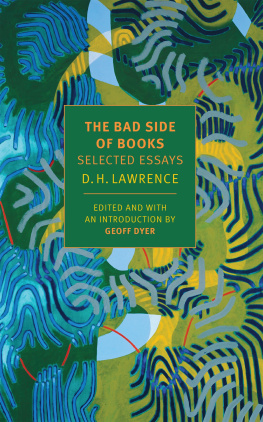
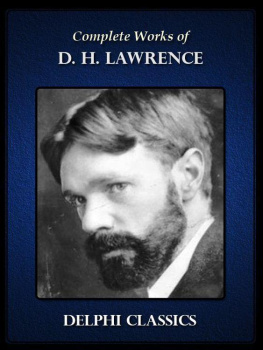

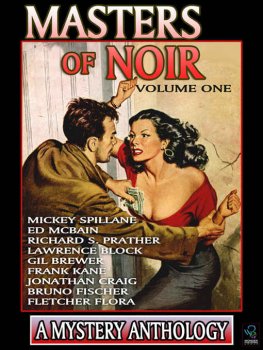
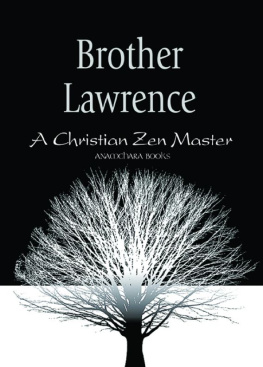
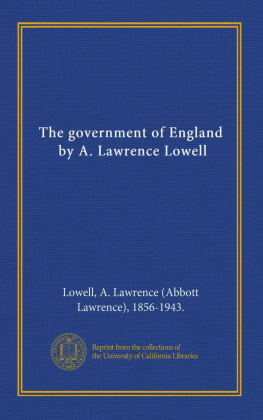
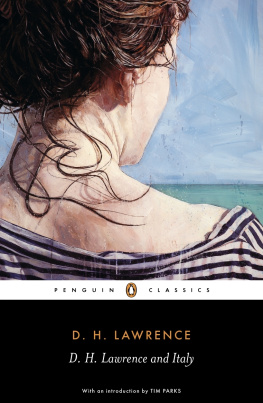
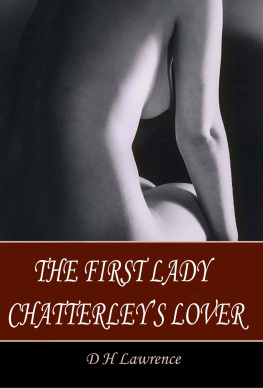
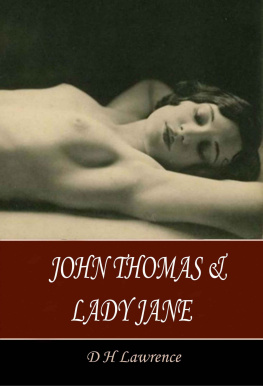

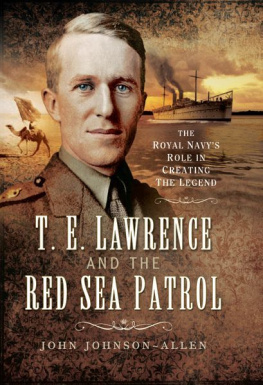
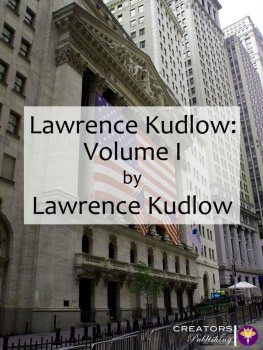
![D. H. Lawrence [Lawrence - Sons and Lovers [Annotated Version]](/uploads/posts/book/61295/thumbs/d-h-lawrence-lawrence-sons-and-lovers.jpg)